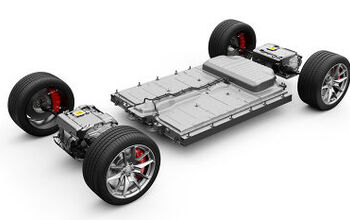Canadian Government Now Wants All Vehicles Zero-Emission By 2035


A staunch consumer advocate tracking industry trends and regulation. Before joining TTAC, Matt spent a decade working for marketing and research firms based in NYC. Clients included several of the world’s largest automakers, global tire brands, and aftermarket part suppliers. Dissatisfied with the corporate world and resentful of having to wear suits everyday, he pivoted to writing about cars. Since then, that man has become an ardent supporter of the right-to-repair movement, been interviewed on the auto industry by national radio broadcasts, driven more rental cars than anyone ever should, participated in amateur rallying events, and received the requisite minimum training as sanctioned by the SCCA. Handy with a wrench, Matt grew up surrounded by Detroit auto workers and managed to get a pizza delivery job before he was legally eligible. He later found himself driving box trucks through Manhattan, guaranteeing future sympathy for actual truckers. He continues to conduct research pertaining to the automotive sector as an independent contractor and has since moved back to his native Michigan, closer to where the cars are born. A contrarian, Matt claims to prefer understeer — stating that front and all-wheel drive vehicles cater best to his driving style.
More by Matt Posky
Latest Car Reviews
Read moreLatest Product Reviews
Read moreRecent Comments
- Plaincraig A way to tell drivers to move over for emergency vehicles. Extra points if it tells were it is coming from and which way you should move to get out of the way.
- EBFlex Ridiculous. “Insatiable demand for these golf carts yet the government needs to waste tax money to support them. What a boondoggle
- EBFlex Very effective headlights. Some tech is fine. Seatbelts, laminated glass, etc. But all this crap like traction control, back up cameras, etc are ridiculous. Tech that masks someone’s poor driving skills is tech that should NOT be mandated.
- Daniel There are several issues with autonomous cars. First, with the race the get there first, the coding isn't very complete. When the NTSB showed the coding and how that one car hit the lady crossing the road in the storm, the level of computation was very simple and too low. Basically, I do not trust the companies to develop a good set of programs. Secondly, the human mind is so very much more powerful and observant than what the computers are actually looking at, Lastly, the lawsuits will put the companies out of business. Once an autonomous car hits and kills someone, it will be the company's fault--they programmed it.
- FreedMike Can we mandate tech that makes Subarus move the f**k out of the fast lane?


































Comments
Join the conversation
Lou start with the beginning. Look at the models of climate change which you rely upon, they are misspecified. Any undergraduate in statistics can see the holes. You understand specification error? I can explain it to you simply, relevant variables are excluded from the model and some of their impact is attributed incorrectly to included variables. A common problem in statistical models and climate models. I can give you several major recent studies showing the significance of solar variables (solar variables are excluded from the CO2 models). Linkages do not seem to carry on this site, but try this, which shows that CO2 concentrations are not related to global temperature change. https://www.mdpi.com/2225-1154/5/4/76 There are many other research projects which support this work. Global greening related to higher levels of CO2, try this for a start, https://advances.sciencemag.org/content/6/47/eabb1981 Read and learn.
No, Lou, you did not read the study, obviously, the relationship between solar variables and global warming/cooling is a solid 97%, several orders higher than the flawed CO2 models you rely on. No scientists have offered a critique of these new solar models, that is just your wishful fantasy. Here is another correlation study by prominent scientists on the solar variable/global temperature relationship, please read it, if you want to learn something, https://www.mdpi.com/2225-1154/5/4/76 You asked for studies, I gave them to you, now you have nothing to say...just as I expected. I am giving you the current state of the science on this. I showed you from the other study that higher CO2 is related to increased global greening and that means higher agricultural productivity. Take away CO2 and you would get famines and reduced world population. The hard way. There is no evidence showing pH levels reducing fish populations, you are the one promoting that idea, you show us the evidence.